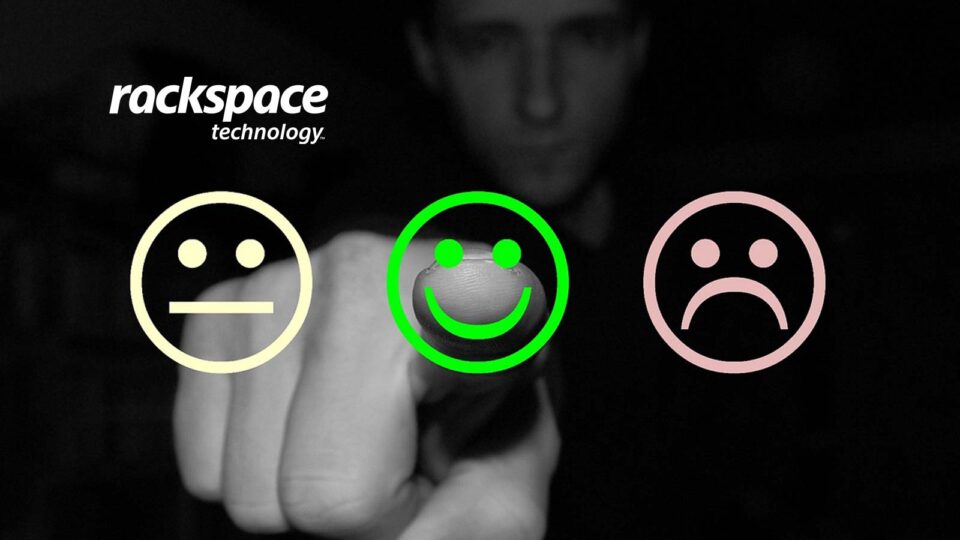Rackspace Technology, a leading end-to-end multicloud technology solutions company, announced the results of a global survey revealing that, in addition to allowing products and services to stand out, modernizing technology and applications to improve customer experiences drives real-world, bottom-line benefits.
Recommended ITech News: Keysight Unveils the First Media Access Control Security Test Solution for High Speed Ethernet
According to the survey, How Applications Impact Customer Experience, organizations that adopt an “experience-led” focus enjoy 1.6x higher brand awareness, 1.5x more employee satisfaction and nearly double their rates of customer retention, repeat purchases, average order values and customer lifetime value. The research underscores the impact that modernizing applications to provide better CX can have on competitiveness and growth.
The global survey included 1400+ respondents in IT and non-IT business units, from companies with $300M annual earnings revenue and above, including both decision makers and application users. The results overwhelmingly confirm that CX is a main strategic priority (48%), ahead of IT security, compliance (45%) and IT strategy (41%), and that technology is the key to driving CX. Over half (55%) of survey respondents credit applications with enhancing customer experiences. Moreover, almost all organizations surveyed understand the importance of customer experiences, with 94% reporting that some form of user experience initiative is underway within their organization. Only a small percentage (6%) report having no customer experiences strategies or initiatives in place.
Recommended ITech News: Micro Server + IKOULA Strengthens Its Range of Raspberry Pi 4 Micro Servers
“The results of our survey are further evidence that modernizing applications through a user lens is not just a ‘nice to have’ from a customer satisfaction perspective, but also delivers a wealth of tangible, quantifiable benefits to organizations,” said Jeff DeVerter, CTO, Rackspace Technology. “Applications are a foundation of customer experiences, and it is encouraging to see an increased focused on and rising enthusiasm for customer experiences improvements.”
Applications and Customer Experience
Applications play a key role in customer experiences, providing mobile accessibility, simplifying application submission, processing customer data, and delivering immersive experiences. Over half (55%) of survey respondents credit applications with enhancing customer experiences. Additional areas of significant benefit include providing more availability to services (48%), security (45%), engagement with products and services (41%), and process improvement (39%).
A large majority (88%) of respondents believe that non-technical C-suite executives recognize the bottom-line benefits of applications, and 90% report that senior management has a better understanding of the benefits of applications in their business than they did just five years ago. As expected, CIOs (55%) and CTOs (53%) are ranked as the most aware of technology benefits. However, CEOs rank close to CIOs and CTOs at 49%, with a noticeable drop off across the rest of the C-suite.
Recommended ITech News: SpiderRock Partners with CloudQuant to provide Historical Derivatives Data Access via API
With this high level of awareness among the C-suite, technology is taking the driver’s seat in corporate strategy in many ways. Six out of ten (63%) respondents are using technology to drive automation efficiencies and over half (51%) are using it to drive IoT and cloud native initiatives. While both categories have an indirect impact on customer experiences, technology initiatives focused on real-time data analysis (44%) and customer engagement (30%) have a more direct impact on building and refining customer interactions.
Barriers to Application Technology Adoption
Although the survey results point to a heightened focus on the use of applications to enhance customer experiences, organizations still face a number of barriers to application technology adoption, including:
- Fear of negatively impacting existing customer experiences (28%)
- Legacy IT systems (26%)
- Limited budget (24%)
- Lack of staff with the appropriate skill sets (22%)
- Lack of expertise to lead transformation activities (18%)
- Cultural resistance to change (16%)
- Lack of buy-in to digital transformation strategy (16%)
- Lack of support from leadership (13%)
Recommended ITech News: Magnet Forensics Leverages Microsoft Azure to Improve Digital Investigations via the Cloud


